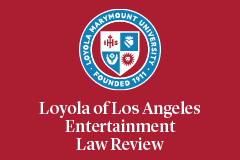Abstract
Twitter parody defamation cases raise novel questions about how to translate defamation law to Twitter’s interactive platform. What constitutes a “reasonable” reader on Twitter? What content is relevant to interpreting the meaning of a tweet from a parody account? The answers to these questions will have far-reaching effects for online speech. Parody authors are already vulnerable to defamation liability, particularly on Twitter where their statements often appear with very little context. Twitter parody accounts, which produce important political and social commentary, risk defamation lawsuits, as well as, in some states, criminal liability for online impersonation. This Note proposes a methodology for interpreting the defamatory meaning of a tweet that the author intended as parody. It argues for a contextual approach that aligns with First Amendment principles and seeks to ensure that core political speech continues to flourish on Twitter parody accounts.
Recommended Citation
Emma Lux,
Twitter, Parody, and the First Amendment: A Contextual Approach to Twitter Parody Defamation,
41 Loy. L.A. Ent. L. Rev. 1
(2021).
Available at: https://digitalcommons.lmu.edu/elr/vol41/iss1/1


